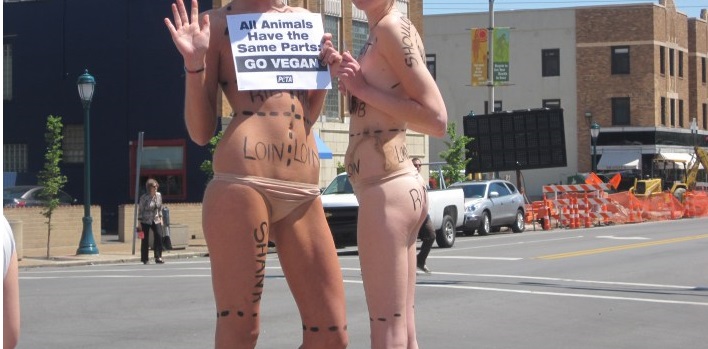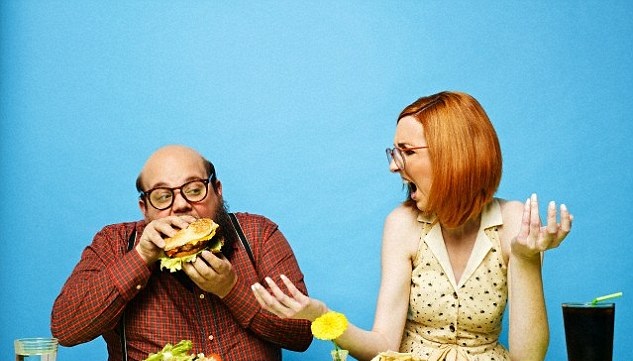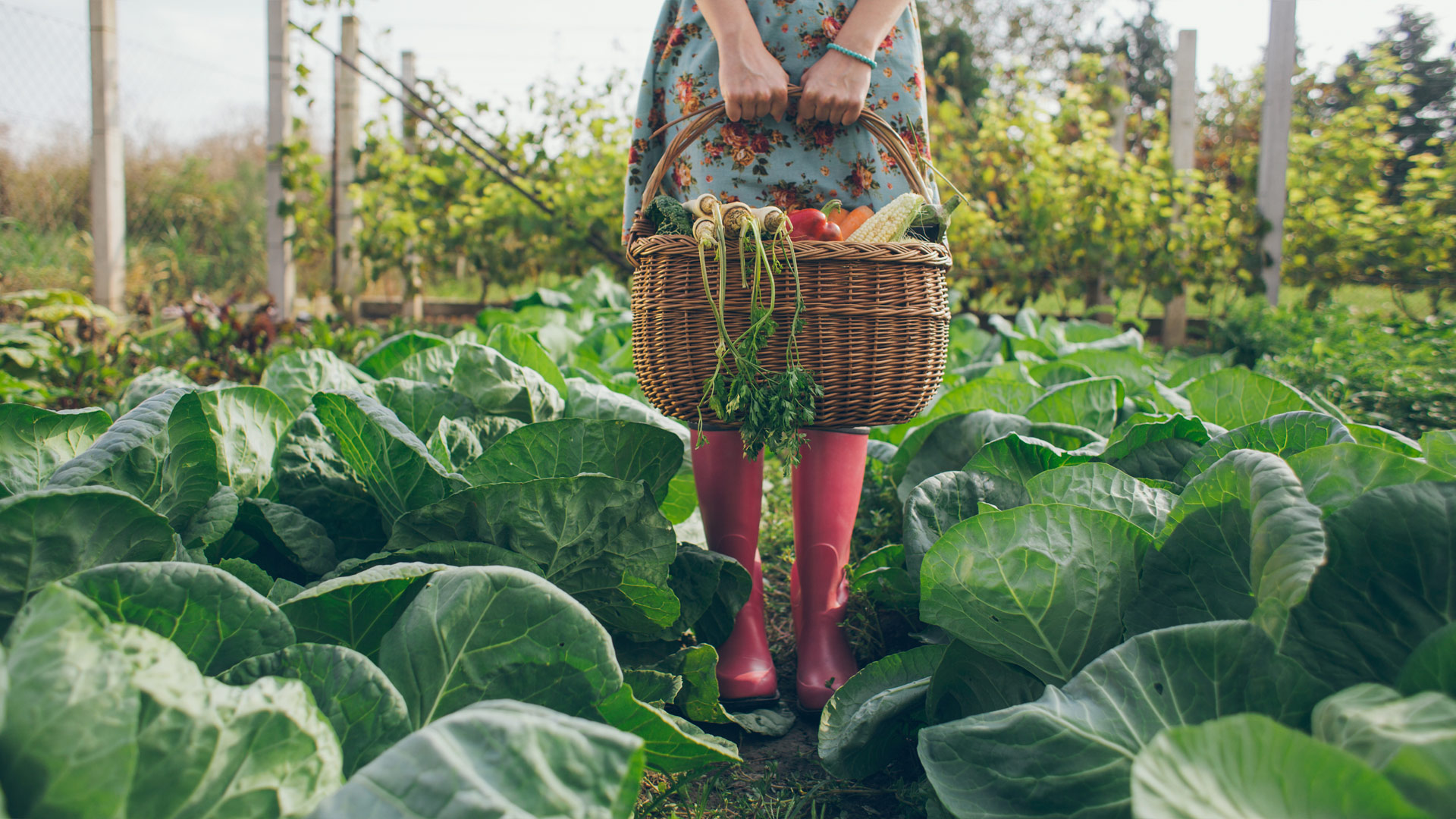TRIGGER WARNING: Discusses sexism and sexual violence.

Dear New Vegan,
Brace yourself, because it’s going to be a bumpy ride. Becoming vegan is, at first, a very frustrating and traumatizing experience. You will have to learn what to eat, what to buy, how to deal with friends and family, and how to manage the intense feelings of anger and sadness that come with opening your mind and heart to the suffering of others. None of this is going to be easy, but, please don’t give up, because it will definitely get easier the longer you stick with it. It will become normal and habitual before you know it, I promise.
You will probably reach out to the vegan community to help you through this transition. You will make lots of great friends and learn a lot from others. You will find great peace in knowing you are not alone and that other folks are out there who are just as passionate as you are about changing the world.
Eventually, however, you may start to realize that being vegan is one thing, but being vegan and female-identified1 is another one altogether. If you are in a relationship, you may find your partner is hostile to your choice. Especially if your partner is male-identified, your vegan presence may present a challenge to his masculine authority. He may insist that you can never change him (even if you never mentioned any intention of doing so!). He may insist that you cook non-vegan meals, or join him in non-vegan restaurants. As a self-identified woman, you may feel considerable pressure to concede. Women are groomed from early on to put the interests of men first. It stinks, but that’s how it is. Don’t feel bad if you do.

If you are a self-identified woman, you may find that male-identified friends are turned off to your veganism as well. For example, a well-meant Facebook post that reminds your readers that Nonhuman Animals matter, too, may aggravate men who are quick to respond with comments about how you’re a) too sentimental; b) loudmouthed; or c) “crazy.” Emotionality, outspokenness, and mental illness are all highly gendered characteristics. Women are easily dismissed for being either too feminine, or not feminine enough. For centuries, we women have been stereotyped as “hysterical” and subsequently institutionalized to control us and shut us up. You’ll often find yourself between a rock and a hard place: don’t be too sappy, but at the same time, watch your tone and don’t be too aggressive. You’ll find they’re pretty much impossible to please, and I suggest you just keep doing what you do.
 But your struggles as a vegan woman might not end there. If you decide that simply being vegan isn’t enough and that you want to get involved with activism, you are going to come up against more male violence. Vegan activism is dominated by women as far as the numbers go, so you may think it’s a safe space for you. In many ways, it is. You will find female solidarity. On the other hand, the vegan movement is very much controlled by men. Men lead vegan activism—they create the theory and they define what tactics are acceptable. They take up the most space and their voices are loudest.
But your struggles as a vegan woman might not end there. If you decide that simply being vegan isn’t enough and that you want to get involved with activism, you are going to come up against more male violence. Vegan activism is dominated by women as far as the numbers go, so you may think it’s a safe space for you. In many ways, it is. You will find female solidarity. On the other hand, the vegan movement is very much controlled by men. Men lead vegan activism—they create the theory and they define what tactics are acceptable. They take up the most space and their voices are loudest.
What this means is that you are going to feel a lot of pressure to help other animals by taking a quiet role behind the scenes in support of these men. You may also be encouraged to take your clothes off for some campaigns. It may not be men directly telling you to get naked (women are in on it, too), but the patriarchal norms of the movement have created an environment where women are simply expected to become sex objects “for the animals.” You might start to think that getting naked for the cause is “liberating.” If you start thinking that, woah, stop. Think again. Consider also that only thin, white, cis women are allowed to “empower” themselves for other animals, and that turning men on sexually is not the same as turning men on to veganism. Empirical research shows that facilitating the oppression of women does not challenge the oppression of other animals.
You will also find a lot of sexual harassment and violence against women in the vegan movement. I don’t mean to scare you off, but it’s true, and you should be warned. It’s something that isn’t talked about a lot, but it’s actually quite common. If you are a woman, don’t let this deter you; just remember that commitment to social justice for Nonhuman Animals does not necessarily translate to a commitment to social justice for all. Really, those men who insist they care about the rights and wellbeing of women, people of color, and other disadvantaged human groups tend to be just as dangerous as those who don’t purport to care at all. If you identify as a man, I implore you to step up and work to make advocacy spaces safer.
Sadly, the work of changing the world is men’s work. If you are female-identified, you are likely to meet resistance if you want to participate in vegan outreach in ways more meaningful than making the coffee or stripping. It doesn’t have to be that way. Try not to lose yourself. Stay strong, demand voice, and demand that you be respected. Insist that veganism be a positive and affirming experience. Do not let the oppressive mentalities of some prevent you from doing the important work you’ve set out to do. And men, please stand with women in solidarity. We could use your help.
P.S. If you are a woman of color, that’s a whole extra set of challenges. As a white woman myself, I can’t speak to the depth of these challenges, but I can tell you that the vegan movement can be a really nasty “color blind” place at times. Definitely check out the Sistah Vegan Project!
Notes:
1. This piece speaks to the female experience, which may include that of trans women, intersex women, and gender-queer women. It should be acknowledged that trans, intersex, and gender-queer vegans have a number of additional challenges faced by the movement.
This piece was originally submitted to an advocacy anthology designed to introduce new vegans to the movement, but did not make the final cut. I suspect that the piece was accepted but later rejected due to its political undertones. It is reproduced here because I feel strongly about bringing honesty and accountability to our movement as a matter of justice for marginalized women. For more information on sexism in the Nonhuman Animal rights movement, please see my book, A Rational Approach to Animal Rights: Extensions in Abolitionist Theory (Palgrave Macmillan 2016). Please also see my publication with the Journal of Gender Studies, “The Role of Professionalization Regarding Female Exploitation in the Nonhuman Animal Rights Movement and my essay for The Feminist Wire, “Gender Policing the Vegan Woman.”
 Dr. Wrenn is Lecturer of Sociology. She received her Ph.D. in Sociology with Colorado State University in 2016. She received her M.S. in Sociology in 2008 and her B.A. in Political Science in 2005, both from Virginia Tech. She was awarded Exemplary Diversity Scholar, 2016 by the University of Michigan’s National Center for Institutional Diversity. She served as council member with the American Sociological Association’s Animals & Society section (2013-2016) and was elected Chair in 2018. She serves as Book Review Editor to Society & Animals and has contributed to the Human-Animal Studies Images and Cinema blogs for the Animals and Society Institute. She has been published in several peer-reviewed academic journals including the Journal of Gender Studies, Feminist Media Studies, Disability & Society, Food, Culture & Society, and Society & Animals. In July 2013, she founded the Vegan Feminist Network, an academic-activist project engaging intersectional social justice praxis. She is the author of A Rational Approach to Animal Rights: Extensions in Abolitionist Theory (Palgrave MacMillan 2016).
Dr. Wrenn is Lecturer of Sociology. She received her Ph.D. in Sociology with Colorado State University in 2016. She received her M.S. in Sociology in 2008 and her B.A. in Political Science in 2005, both from Virginia Tech. She was awarded Exemplary Diversity Scholar, 2016 by the University of Michigan’s National Center for Institutional Diversity. She served as council member with the American Sociological Association’s Animals & Society section (2013-2016) and was elected Chair in 2018. She serves as Book Review Editor to Society & Animals and has contributed to the Human-Animal Studies Images and Cinema blogs for the Animals and Society Institute. She has been published in several peer-reviewed academic journals including the Journal of Gender Studies, Feminist Media Studies, Disability & Society, Food, Culture & Society, and Society & Animals. In July 2013, she founded the Vegan Feminist Network, an academic-activist project engaging intersectional social justice praxis. She is the author of A Rational Approach to Animal Rights: Extensions in Abolitionist Theory (Palgrave MacMillan 2016).
Receive research updates straight to your inbox by subscribing to my newsletter.
 Dr. Corey Wrenn is Lecturer of Sociology and past Director of Gender Studies (2016-2018) with Monmouth University. She received her Ph.D. in Sociology with Colorado State University in 2016. She received her M.S. in Sociology in 2008 and her B.A. in Political Science in 2005, both from Virginia Tech. She was awarded Exemplary Diversity Scholar, 2016 by the University of Michigan’s National Center for Institutional Diversity. She served as council member with the American Sociological Association’s Animals & Society section (2013-2016) and was elected Chair in 2018. She serves as Book Review Editor to Society & Animals and has contributed to the Human-Animal Studies Images and Cinema blogs for the Animals and Society Institute. She has been published in several peer-reviewed academic journals including the Journal of Gender Studies, Feminist Media Studies, Disability & Society, Food, Culture & Society, and Society & Animals. In July 2013, she founded the Vegan Feminist Network, an academic-activist project engaging intersectional social justice praxis. She is the author of A Rational Approach to Animal Rights: Extensions in Abolitionist Theory (Palgrave MacMillan 2016). Subscribe to Dr. Wrenn’s newsletter for research updates.
Dr. Corey Wrenn is Lecturer of Sociology and past Director of Gender Studies (2016-2018) with Monmouth University. She received her Ph.D. in Sociology with Colorado State University in 2016. She received her M.S. in Sociology in 2008 and her B.A. in Political Science in 2005, both from Virginia Tech. She was awarded Exemplary Diversity Scholar, 2016 by the University of Michigan’s National Center for Institutional Diversity. She served as council member with the American Sociological Association’s Animals & Society section (2013-2016) and was elected Chair in 2018. She serves as Book Review Editor to Society & Animals and has contributed to the Human-Animal Studies Images and Cinema blogs for the Animals and Society Institute. She has been published in several peer-reviewed academic journals including the Journal of Gender Studies, Feminist Media Studies, Disability & Society, Food, Culture & Society, and Society & Animals. In July 2013, she founded the Vegan Feminist Network, an academic-activist project engaging intersectional social justice praxis. She is the author of A Rational Approach to Animal Rights: Extensions in Abolitionist Theory (Palgrave MacMillan 2016). Subscribe to Dr. Wrenn’s newsletter for research updates.



